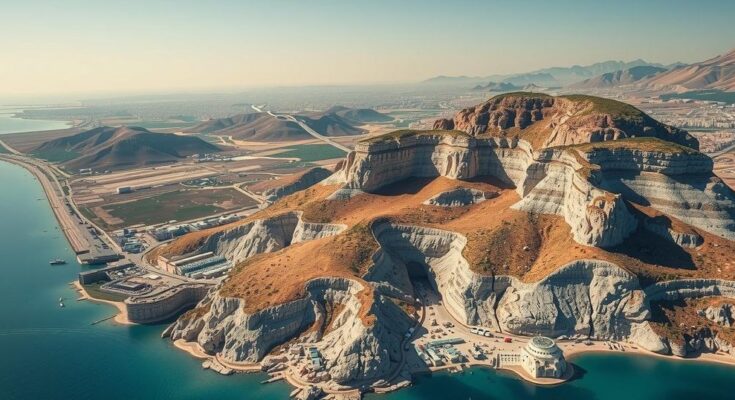The political upheaval in Syria has awoken the Sunni community in Lebanon, resulting in demands for amnesty for imprisoned Islamists and a renewed struggle against Hezbollah’s influence. As Lebanon approaches presidential elections, the Shiite and Christian communities grapple with significant political fragmentation amid fears of renewed instability linked to Sunni rising sentiments. The unfolding political dynamics between Lebanon and Syria present a complex interplay of power, potential unrest, and shifting allegiances.
The political landscape in Lebanon has dramatically transformed following the recent upheaval in Syria, especially among the Sunni community. The fall of the Assad regime was initially met with celebrations in Sunni areas of Lebanon, prompting calls for the release of imprisoned Sunni Islamists. Sheikh Ahmad Shemali led a protest demanding amnesty for those incarcerated, signaling a shift towards increased political activism within the Sunni factions. This awakening is partly fueled by a desire to regain dominance over the Shiite Hezbollah, which is facing challenges due to its weakened status after the Syrian conflict.
The dynamics of Lebanon’s political system are currently in turmoil. The Shiite community, particularly Hezbollah, seems to be struggling to maintain its influence in light of setbacks against Israel and the loss of support from the Alawite regime in Syria. A recent meeting between General Joseph Aoun, the commander of the Lebanese Armed Forces, and Wafiq Safa of Hezbollah highlighted disagreement over the disarmament of Hezbollah, raising questions about future governance and military control.
Within the Christian sector, divisions hinder the formation of a unified candidate for the upcoming presidential elections. Competing factions are in a race to field a viable candidate while contending with accusations of collaboration with Hezbollah and the Assad regime. Jibran Bassil, aligned with Hezbollah, faces opposition from leaders of other parties who currently do not have the numbers to enforce their candidate.
Moreover, the Sunni community’s resurgence occurs against the backdrop of a neighboring Sunni regime in Syria, which could potentially destabilize Lebanon further. Local political actors fear the possibility of unrest spilling over into Lebanon from the Syrian conflict, a situation reminiscent of past incursions by ISIS. Even as leaders like Ahmad al Sharaa signal support for a potential anti-Hezbollah presidency, the new Syrian government appears unlikely to instigate subversive actions against Lebanon in the immediate term.
Ultimately, events occurring in Syria will inherently influence Lebanon’s political and social climate. The Syrian regime is currently focused on consolidating its power and fostering relations with factions that aided in Assad’s ousting, indicating that while the situation remains fluid, the significant impact on Lebanese governance may be limited, albeit instability in the short-to-medium term is still anticipated.
In recent months, the political engagement of the Sunni community in Lebanon has intensified due to the shifting dynamics in Syria following the fall of Bashar Assad’s regime. As the Lebanese Sunni factions, particularly those in Tripoli and Beirut, seek to assert their influence, they face the challenges of a weakened Hezbollah and a divided Christian political landscape. The call for amnesty for imprisoned Islamists reflects the resurgence of political activism among Sunnis, while Hezbollah’s declining status post-conflict raises questions about the future balance of power within Lebanese politics. This context showcases the complex interplay between Syrian politics and Lebanese governance and social stability, highlighting the historical ties and current geopolitical tensions that shape both nations.
The shifting currents in Lebanon’s political sphere following Syria’s upheaval illustrate the intertwined fates of the two nations. The Sunni community’s demand for political recognition and the challenges faced by Hezbollah amidst declining popularity signify crucial changes in Lebanon’s governance landscape. As the external influence of a newly formed Sunni regime in Syria looms, Lebanon’s political future will likely face instability, influenced by numerous local and regional factors. The landscape of power dynamics continues to evolve, revealing the need for strategic political maneuvering amidst a backdrop of historical and social complexities.
Original Source: jcpa.org




